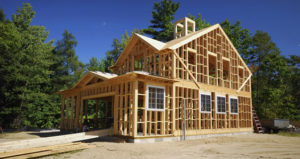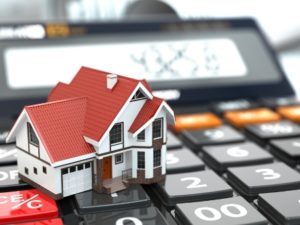 There are many reasons to consider buying a property. You might want somewhere to live that you can call your own? Perhaps you see real estate or owning a property as a status symbol. Maybe you’re just trying to collect assets? Regardless of your priority needs, any purchase worth as much as a property must be considered a financial investment. That means you must assess the risks of loss, and research to determine the potential growth or increased worth.
There are many reasons to consider buying a property. You might want somewhere to live that you can call your own? Perhaps you see real estate or owning a property as a status symbol. Maybe you’re just trying to collect assets? Regardless of your priority needs, any purchase worth as much as a property must be considered a financial investment. That means you must assess the risks of loss, and research to determine the potential growth or increased worth.
There are many steps you need to take before you can finally pick up the keys and let yourself in. Each of those steps might be a factor in your final decision or your reason for buying the property you chose. They might also be a reason for changing your mind too!
Time
The first consideration is time. How long do you have before you need to complete the sale? If you’re not in a rush, then you might decide to save up as much cash as possible before property hunting. The more you have upfront, the less you have to borrow. This increases the profit you can make on your property investment because you are not being charged as much interest on a smaller loan.
If you don’t have much time, then you need to find the money to cover the cost of the property. There are many other costs involved with buying real estate too. The legal costs and survey costs are just some of the expenses you need to cover up front. There are likely to be taxes, and you might incur moving fees if you plan to live in your new property. If you can spare more time, you can save more to cover each of these costs.
Financing
Financing your purchase is easy if you have a great credit rating. In fact, there are many mortgage lenders that are desperate to lend to people that have a good rating. Buy-to-let mortgages are plentiful too. If you have a substantial deposit, you might be eligible for a mortgage product that is low interest. If you’re not quite so financially ‘viable’, then financing in this way can become expensive.
Many ‘millennials’ are finding it necessary to approach the bank of mom and dad to fund the deposit. As salaries for this age group are quite low, it is essential to find quite a significant deposit. The deposit is the sum that is outstanding after the mortgage has paid for the property. The lender will expect to see that you have that outstanding amount (usually a minimum of ten percent of the purchase price) before paying the loan out.
If you are planning to become a property investor or a landlord, you might be able to develop a relationship with a business investor in this sector. This will become a legally binding business relationship in many cases. There will be responsibilities and obligations that you will need to meet. This is not usually the right option if you’re trying to buy a home.
Other Options For Raising Cash
You might already have a home that you need to sell first. This puts you in a ‘chain’ and can be difficult to coordinate. However, selling your current property may release a lot of equity so that you can buy another home. You don’t need to limit yourself to selling property to raise money for a deposit or purchase. Anything you don’t need could be sold privately or through an agent to help you raise more cash.
Your employer might also help you out with a loan or an advance. Usually, loans must be declared on your mortgage application. This might not appear favorably to any lender. Why not take some overtime, or ask for a pay rise? Changing jobs or taking a second job can also help you to raise the cash you need.
Sharing ownership of the property can also help you out financially. Legally, you are both responsible for mortgage repayments. If one of you stops paying for any reason, the other must cover the entire bill in most cases. Speak to your lawyer about this kind of arrangement and the potential consequences of non-payment.
Searching For The Right Property
Once the money is agreed, you can start searching for a property within your budget. You might already have some idea of the type of property you want. However, if you’re willing to be flexible, you might be able to secure a place with the most important requirements. You might be looking for four bedrooms, but your first choice of neighborhood means that is not affordable. You would need to reduce the bedrooms or pick a different community.
If you’re investing in property, you don’t need to restrict yourself to your local neighborhood at all. You could purchase overseas in areas that are up-and-coming. A big property search service like the one at http://rumahdijual.com/properti-dijual could help you to find something affordable. Of course, after the exchange rate, you might find you can afford incredible properties. Maybe large houses or mansions are affordable for you when you look overseas.
Whether you buy here or further afield, the purpose of your purchase must be clear in your mind. Consider your lifestyle and how the property you choose might affect that. If you’re buying as an investment, then a great deal of research on the community is essential. Look at sales data and the demographic of the region. Determine the type of person that will be interested in your property so you can strategize your marketing efforts.
Houses
Buying houses might be a little easier than other types of property. Land boundaries and rights to that plot are usually much simpler too. It’s unlikely you’ll be sharing any part of the property with others. This can make it easier to sell on when you’re ready. Of course, houses can be subdivided. You can rent out individual rooms or convert the property into flats.
Often, houses appeal to families. If you purchase a property that needs a little care and attention, you might be able to do the work then sell it on to a family in need of a good quality property. Alternatively, why not rent it out? Properties of multiple occupancies tend to net more profit and a higher rent in total, though.
Apartments
Apartments in the city can be very attractive to career driven singles and couples. However, the location of the property can drive the prices up. Nobody likes commuting, so many apartments are purchased or rented for mid-week living close to work. This means that you could tap into this market with your next property investment.
There are several things to consider though. There will be fees or rent to pay for the communal areas when you buy a property in a block. Empty apartments are rarely exempt. Access will be required periodically by the building owner. This could be for maintenance and testing of the block safety facilities like fire alarms. Ultimately, you have no land that is your own. The value of the bricks, therefore, may not appreciate as much as you would like.
For You, Your Portfolio, Or Business?
Once you’ve considered all of the above, you’re probably ready to make the final decision about the purpose of your purchase. Are you buying a home for yourself? If so, how long do you intend to live there? If the property is a forever home, do you intend to leave it to the kids as an inheritance, or sell it to fund your later-life care?
Perhaps this property will be part of a big portfolio you intend to develop over time? Maybe it’s the first one! Are you going to rent it out, or do it up and sell it on? Perhaps you’ll sit on it for a few years and wait for the value to go up? How will you start to reap a return on your investment in the meantime?
If you’re buying for business, then you need to consider the purpose of the property or the land it sits upon. You might be keen to develop the area. This might include demolition and rebuilding. Or maybe you’re converting or renovating the buildings on the land? Check the legal and planning restrictions on the real estate before buying.
The Process Of Buying
Buying a property takes a long time. Once you’ve found the one you want, you put in an offer to the vendor. They might go away for a few days to consider your offer. Even if it is agreed, you then need to find legal representation and finalize your financing. Surveys and checks can take weeks. If anything is found that your lender doesn’t like, you might have to start a new application with another lender.
At any point, the sale can fall through. There may be delays with other purchases and sales in the chain. Until the keys are in your hand, nothing is certain. It can be a bit of a waiting game. Of course, once the property is yours, it may be a long wait to see any return on your investment. Are you ready to buy a property?
 When a person invests in real estate, he or she doesn’t go to an auction. Usually, they find a realtor, view a variety of properties, and make a few bids. There is nothing wrong with this method. In fact, it’s a tried and tested technique which has provided excellent results on many occasions. But, that doesn’t mean that an investor only has one path to walk. Regardless of how you feel, auctions provide a range of benefits which make them a no-brainer. For the non-believers, below are the reasons why they are great places to find cheap properties.
When a person invests in real estate, he or she doesn’t go to an auction. Usually, they find a realtor, view a variety of properties, and make a few bids. There is nothing wrong with this method. In fact, it’s a tried and tested technique which has provided excellent results on many occasions. But, that doesn’t mean that an investor only has one path to walk. Regardless of how you feel, auctions provide a range of benefits which make them a no-brainer. For the non-believers, below are the reasons why they are great places to find cheap properties.















